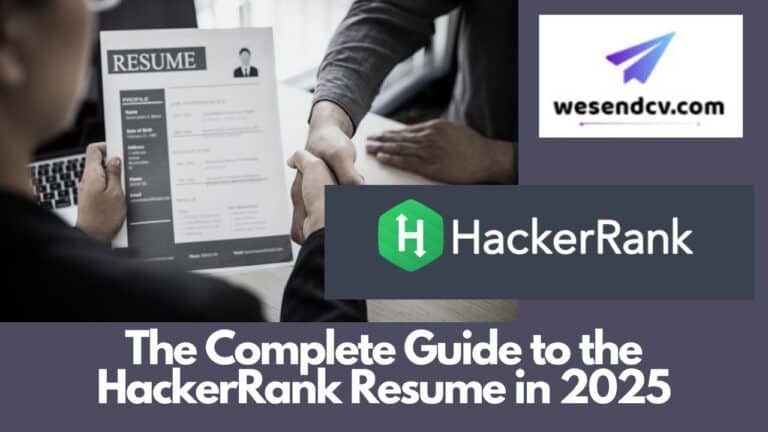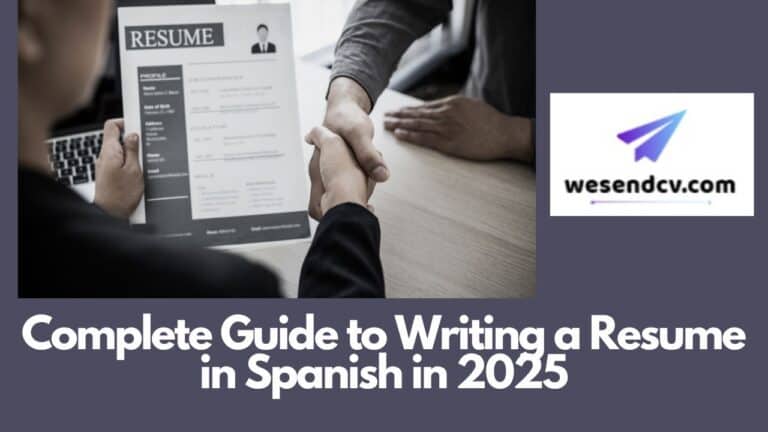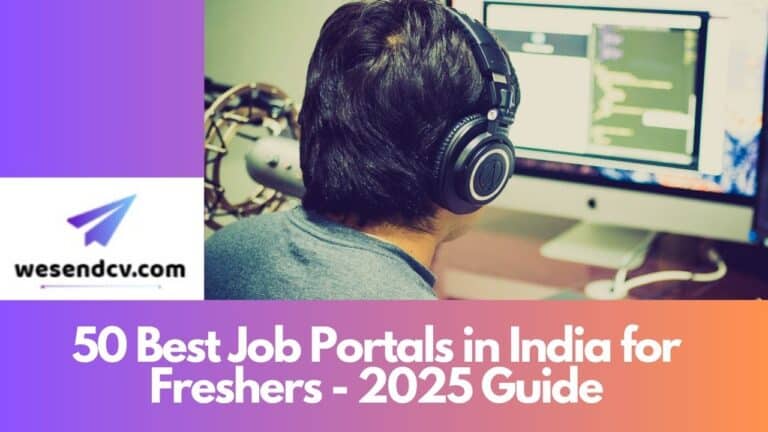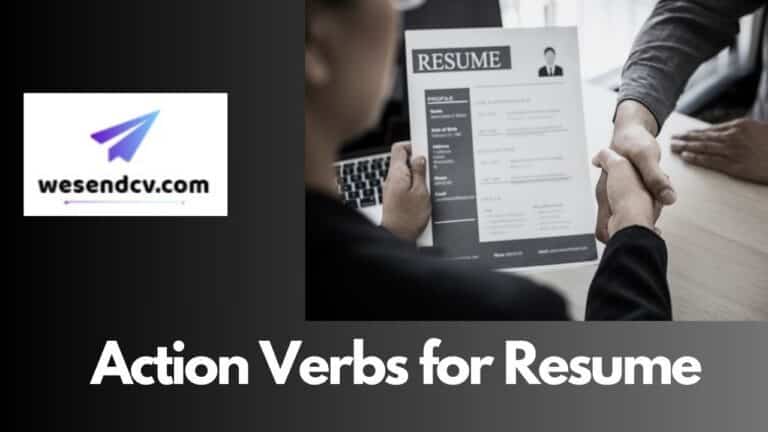Creating a resume with no work experience might feel like a challenge, but it’s entirely possible to craft a standout resume that highlights your skills, education, and potential. If you’re applying for your first job in 2025 or transitioning into a new field with limited hands-on experience, this guide will help you create a compelling resume that impresses recruiters.
Main Highlights of Content
ToggleHow Can I Write a Resume in 2025 with No Work Experience?
Writing a resume without work experience requires a focus on what you can offer. You’ll be leaning on your skills, education, volunteer work, internships, and any relevant projects you’ve completed. Here’s a step-by-step approach:
1. Start with a Strong Resume Summary
Even without work experience, you can still include a short, powerful summary at the top of your resume. The goal of this section is to highlight your strengths and potential. While traditional resumes often focus on experience, a summary for those with no work history should focus on:
- Your enthusiasm for the role
- Key skills and qualifications
- What you can bring to the company
Example: Enthusiastic marketing graduate with strong organizational and research skills. Looking to leverage academic knowledge in digital marketing and social media strategy to help businesses grow their online presence.
2. Highlight Your Education
In 2025, education remains a valuable asset, especially when you have no work experience to rely on. Showcase your academic background, including your school name, degree, and graduation year.
Tips:
- Include relevant coursework that ties into the job you’re applying for.
- Mention any awards or honours received during your studies.
- If applicable, highlight projects or research you’ve done as part of your coursework.
Example: Bachelor of Arts in Digital Marketing – University of Technology Relevant Coursework: Digital Marketing Strategy, SEO, Content Marketing
3. Leverage Internships, Volunteering, and Projects
Many students and entry-level candidates participate in internships, volunteer programs, or extracurricular projects. These experiences are incredibly valuable, even if they aren’t traditional work.
How to Include These:
- List any internships, volunteer work, or projects under a section called “Experience” or “Relevant Experience.”
- Describe your responsibilities, skills learned, and achievements during these activities.
- Quantify your achievements whenever possible (e.g., “Managed a social media campaign that increased engagement by 30%”).
Example: Social Media Intern – Digital Agency X Managed social media accounts for small businesses, improving engagement rates by 30%. Created content calendars and assisted with content creation.
4. Include a Skills Section
In 2025, technical skills are more important than ever, even for entry-level positions. Create a dedicated “Skills” section to highlight both your technical and soft skills.
Technical Skills Examples:
- Microsoft Office Suite
- Social Media Management (Facebook, Instagram, LinkedIn)
- Google Analytics
- Basic HTML/CSS
Soft Skills Examples:
- Time Management
- Communication
- Problem-Solving
- Team Collaboration
Tip: Make sure to tailor your skills to the job you’re applying for. Many companies use Applicant Tracking Systems (ATS) to scan resumes, so including relevant keywords from the job description will boost your chances.
5. Emphasize Certifications and Online Courses
In 2025, online courses and certifications are viewed as a valuable part of education. If you’ve taken any online courses or received certifications from platforms like Coursera, LinkedIn Learning, or Udemy, include these in a dedicated section.
Example: Google Analytics Certified – Google Digital Garage Digital Marketing Fundamentals – Coursera
6. Showcase Personal Projects or Portfolios
If you’ve completed personal projects, include them. Whether you built a website, designed a personal app, created a blog, or managed a YouTube channel, these all demonstrate initiative and the ability to apply your skills in real-world settings. For this use the Achievement Generator tool.
Example: Personal Blog: Created and maintained a personal blog about fitness and nutrition, achieving 5,000 monthly readers through organic traffic.
7. Include Extracurricular Activities and Leadership Roles
If you’ve held leadership roles in school clubs, sports teams, or student organizations, these experiences show initiative and teamwork skills. Don’t hesitate to mention them on your resume.
Example: President – University Debate Team Led a team of 12 members, organized weekly meetings, and coordinated participation in 3 regional competitions.
8. Use a Clean, Easy-to-Read Format
Recruiters and hiring managers don’t have time to sift through cluttered resumes. Focus on a clean, professional format that’s easy to scan. Ensure you:
- Use clear headings
- Stick to one font throughout the resume
- Leave plenty of white space for readability
- Use bullet points to break down tasks and responsibilities
Bonus Tip: For a seamless formatting experience, try using the Resume Formatting Tool to create a professional resume layout in minutes.
9. Tailor Your Resume for Each Job
You might feel tempted to use a single resume for every job application, but in 2025, customising your resume for each role is essential. Make sure you align your summary, skills, and experience with the specific job description.
How to Do This:
- Read the job posting carefully and pick out the most important skills and qualifications.
- Make sure your resume highlights those same skills.
- Use relevant keywords to ensure your resume gets through the company’s ATS.
10. Add a Cover Letter
While not every job requires a cover letter, including one can set you apart from other candidates, especially if you don’t have much work experience. A cover letter allows you to explain why you’re a great fit for the job and elaborate on your skills and education.
Example: Dear Hiring Manager, I am excited to apply for the marketing assistant role at your company. While I may be new to the professional world, my academic training and volunteer experience have equipped me with valuable skills in digital marketing and project management.
FAQ: Writing a Resume in 2025 with No Experience
Q: Should I include an objective or summary on my resume? A: Yes. A resume summary can help focus the recruiter’s attention on your strengths, even if you lack traditional work experience. Keep it short and focused on the skills and qualifications that make you a strong candidate.
Q: How do I stand out without job experience? A: Leverage internships, volunteer work, extracurricular activities, and any personal projects you’ve worked on. These experiences can demonstrate skills like teamwork, communication, and leadership.
Q: What if I have no skills relevant to the job? A: Focus on transferable skills like time management, communication, and problem-solving. Also, consider gaining new technical skills through online courses or certifications, which you can complete before applying.
Q: How do I get my resume past ATS without experience? A: Tailor your resume for each job application. Include keywords from the job posting, particularly in your skills and summary sections. This will increase your chances of passing ATS filters.
Q: Can I still get hired without work experience? A: Absolutely. Companies value skills, initiative, and potential. Many companies in 2025 will be looking for individuals eager to learn, so showing that you’re motivated and willing to grow can make a big difference.
Good links to read = 2025 Resume Styles: Which Format Works Best for Your Industry, Resume vs CV in 2025: What’s the Difference and Which to Use
Final Thoughts
Writing a resume without work experience may seem tough, but it’s entirely doable when you focus on what you can offer. Emphasize your education, projects, volunteering, and any transferable skills. Tailor each resume for the job you’re applying for and use clean, professional formatting.
Need help perfecting your resume? Check out free resume tools to make your resume job-ready for 2025.







